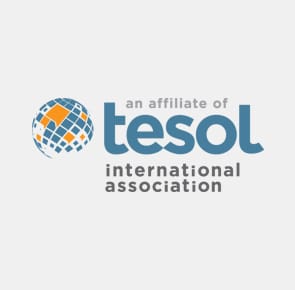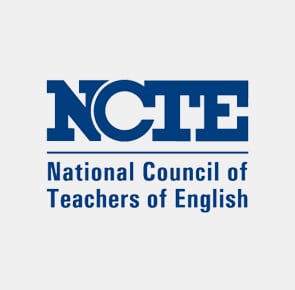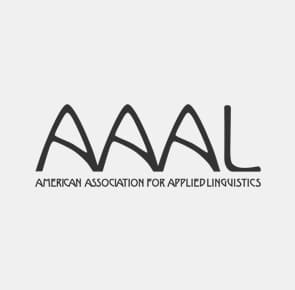A career in Teaching English as a Second Language (TESOL) begins with a desire to help English learners acclimate to their new schools and environment through language. To realize this desire, you will need an education. If you want to launch directly into your own classroom, you will need a bachelor's degree in TESOL.
During your four years in college, you can strive to complete a double major in a second language. For your core electives, you can also study the history and culture that pertains to your language specialty. Your students will appreciate when you understand the cultures they come from.

Components of A Successful Career In TESOL/ESL/Bilingual
The core component of a successful career as a TESOL/ESL teacher will be your education. You cannot become a teacher without at least a bachelor's degree in teaching. You'll also need to specialize in TESOL or acquire a special certification in the field. This will be all the more important in areas where TESOL teachers are more common.
Your career will also benefit from at least a working knowledge of the languages your students speak at home. Depending on your local area, it may be next to impossible to master all the languages your students speak at home, but if you learn one of the major tongues you should find success. For most places in the United States, Spanish is the most common non-English language. In larger cities, such as New York City, Chicago, or Los Angeles, you will find more linguistic diversity. Russian and Chinese are becoming more common in some areas, as is Polish. Also, if you choose to take you TESOL degree to another country, you could specialize in Chinese or Korean so that you have an easier time relating to your new students and living in the country in which you teach.
Compare Popular Online English Language Learning Programs
How to Become an ESL Teacher
Typical TESOL/ESL/Bilingual Degree Requirements
 When you start out in the field of Education, you can get started with an online associate degree. While you will not be able to have your own TESOL classroom, you can work as a ParaPro. If you have special language skills, there's a greater chance of working in an ESL/TESOL classroom. For an online associate degree, you will typically need 60 semester hours.
When you start out in the field of Education, you can get started with an online associate degree. While you will not be able to have your own TESOL classroom, you can work as a ParaPro. If you have special language skills, there's a greater chance of working in an ESL/TESOL classroom. For an online associate degree, you will typically need 60 semester hours.
With 120 total undergraduate semester hours, you can complete an online bachelor's degree. Look for an Education department that offers a specialty in TESOL, and a school that offers your favored language. In addition to a typical classroom education, you will also need to complete a student teaching experience that will immerse you in the field. Once you have graduated, you should qualify for a teaching certification from your state.
Find Your Online English Language Learning Program
Your master's in education will require approximately 30 semester hours, but sometimes more. When you are in a master's program, you should focus on TESOL so that you become a true master of that discipline.
Typical TESOL/ESL/Bilingual Certifications Needed
To teach English as a Second Language (ESL), you will certainly benefit from a certification/endorsement in the field. This is all the more important in areas where there are high populations of English Language Learners (ELLs.) New York City, for instance, has vast numbers of Spanish, Mandarin, and Arabic-speaking students, among many others. NYC thus requires a special certification in ESL.
Academic Standards for a TESOL/ESL/Bilingual Degree
TESOL students must meet certain standards in order to receive a diploma that covers the specialty area they desire. Many programs require that you take one year of a foreign language in addition to the standard courses for a degree in Education. While that requirement may overlap with your college's typical core curriculum, the Education department might have special GPA requirements. Many require a minimum B-, but other programs might demand a B+ or even an A.
Though you can usually study the language of your choosing, it's recommended that you study a language for which your state has a demand. Very often, Spanish is in higher demand, but you might also consider Mandarin, French/Creole, or Arabic.
Exam/Experience Needed for a TESOL/ESL/Bilingual Degree
 To satisfy the requirements of an ESL/TESOL degree, you likely won't need to pass a certain examination. However, your state Board of Education might require that you pass a subject-area test in TESOL. You will also need to complete all of your coursework with satisfactory grades. If you wish to earn a certificate to teach your particular foreign language, you will need to pass a subject-specific standardized test in that language. These tests are often quite difficult and are known to test on rarely-used vocabulary. However, if you have credentials that qualify you for both foreign language instruction and TESOL, you will find more opportunities.
To satisfy the requirements of an ESL/TESOL degree, you likely won't need to pass a certain examination. However, your state Board of Education might require that you pass a subject-area test in TESOL. You will also need to complete all of your coursework with satisfactory grades. If you wish to earn a certificate to teach your particular foreign language, you will need to pass a subject-specific standardized test in that language. These tests are often quite difficult and are known to test on rarely-used vocabulary. However, if you have credentials that qualify you for both foreign language instruction and TESOL, you will find more opportunities.
Online Associate Degree
An online associate degree in Education with an ESL focus can prepare you to enter a classroom as a ParaPro. State Boards of Education don't allow teachers without a minimum of a bachelor's degree to acquire a full teaching credential. However, your ParaPro experience will be infinitely valuable when you do complete your bachelor's degree and seek a job. As you work to complete your associate degree, you may take some of the following courses:
Example Online Coursework for Associate Degree in Tesol Esl Bilingual:
- Introduction to Education
- Exceptional Child
- Educational Technology
- Developmental Psychology
Since an AA degree often costs less than $10,000, it's a great value that will start your career with minimal financial burden.
Online Bachelor’s Degree
When you complete an online Bachelor’s Degree program in TESOL, you should qualify for your state's teaching credentials. During your four years, you will take the required education courses, plus a foreign language. Depending on your program, you will also take courses that directly relate to teaching students from foreign countries. Your coursework might include, but won't be limited to, some of the following courses:
Example Coursework for Online Bachelor’s Degree in Tesol Esl Bilingual:
- Classroom Management
- Behavioral and Emotional Disorders in the Classroom
- Literacy and Language Arts
- Communication Strategies and Conflict Resolutions
- Student Teaching
- Second Language Acquisition
- Introduction to Linguistics
- Language Assessment and Testing
A BA will usually encompass 120 semester hours and comes with a price tag somewhere between $30,000 and $300,000.
Online Master’s Degree
To achieve the top salaries for your profession, you will want to earn a master's degree. The two years spent working on the degree will not only pay off financially, but you will find that more teaching positions are within your grasp, you bring new methods to your teaching process, and you qualify to work in administration, if you choose. A master's degree is not cheap, but at approximately $20,000, it will pay for itself in a few years. While you work towards an MA (or MS) in teaching, you might take some of the following courses:
Example Coursework for Online Master’s Degree in Tesol Esl Bilingual:
- TESOL Curriculum Design and Development
- Linguistics and TESOL Pedagogy
- Online Instruction in TESOL
- Discourse Analysis Pragmatics
Regardless of what they actually teach, most teachers make around the same amount of money. While experience does come with raises, the main determining factor for your salary is your education. That is because public schools are governed by their state government and so there are set standards and rather rigid pay grades. Thus, your pay as a ParaPro with an AA degree will be at the lower end of the pay scale. However, your pay will rise when you graduate with a BA and attain a full teacher's license. A master's or doctoral degree will place you at the top for educators.
TESOL/ESL/Bilingual Fields of Study Median Salaries
- TESOL Education:
This field trains budding teachers to teach non-English-speakers how to converse and otherwise communicate in United States' culture. While you will need to study a foreign language as part of your training, you will also study linguistics and the particulars of ESL pedagogy, too. While many TESOL teachers focus on Spanish, there is a great demand for teachers able to teach Mandarin speakers, as well as Arabic speakers. - Primary Education:
This field trains budding teachers to instruct students in kindergarten through fifth grade. If your program omits secondary education, it might include courses for Middle Grades educators with its primary school curriculum. Both primary and middle grades candidates will need to take Praxis I for their credentials, and Middle Grades educators will need to pass a subject-specific test for their classrooms. - Secondary Education:
When you study secondary education, you will probably want to include a double major in your plans. That's because if you want to be the very best teacher, you will need to have some mastery over the subject matter you teach. If you are an exceptional student yourself, you might one day teach Advanced Placement courses to high schoolers as they prepare for college.Find Online English Language Learning Schools
- Psychology:
This is a great minor or even double-major for a future educator. Already, many education programs require courses like Developmental Psychology for their teacher-preparation programs. However, you could pursue the field as an end in itself and embark on a career in clinical psychology or research. Some Psychology PhDs remain in the educational realm and study the impacts of various teaching methods. - Sociology:
In this field, you'll study social trends and phenomena. In the educational realm, you might look at the impact of school uniforms or changes to nutrition in the lunchroom. This is another field that can be a great compliment to an online degree in education, as it provides insight into the wider world your students face. - Social Work:
Some say that teaching in public schools is partly like being a social worker. In the actual field, however, you study how to best allocate resources to those in need. Social Workers also work in clinical settings, providing psychotherapy, marriage and family counseling, etc. - School Counseling:
This subset of clinical psychology looks at how to help students overcome difficulties that impair their academic lives. School counselors are there for students when they run into trouble at home or during the school day. Like teachers, counselors are mandatory reporters and must alert state officials if they suspect that a student is a victim of abuse. - Public Policy:
This field of study is concerned with how governmental agencies allocate resources. If your goal is to work in administration or to impact education from a governmental standpoint, this is a great degree to have. It can also work well as a double-major if you intend on teaching Social Studies or Government to secondary students. - Gifted and Talented Education:
To meet the needs of high-IQ students and thus ensure that they are able to give their all to society, schools employ gifted and talented teachers. These educators are creative and can work with high-IQ students to devise extra projects or to work on more advanced subjects. Gifted and Talented teachers might work with students on computer programming or in-depth research projects as a way to enrich their academic lives. - Special Education:
It takes a certain type of person to pursue Special Education. This field focuses on education for students with learning disabilities, developmental delays, and other cognitive or behavioral problems. The field is wide-ranging, and some students graduate from their SPED classrooms to attend Ivy League institutions, while others are barely able to work part-time, menial jobs, if at all. - Physical Education:
This field of study concerns understanding how we learn and develop as physical, even athletic, individuals. PE teachers help students learn games, how to exercise properly, and learn to gauge their progress to fitness. You might also study things like nutrition and help students integrate how they move with how they eat. - Arts Education:
An Arts teacher helps students explore the more creative side of themselves. While some may find this superfluous to some distant career, the best workers are often found to employ a great deal of creativity. Further, you'll see how arts also teaches problem solving and even abstract reasoning.
Field of Study Average Salary by Degree Level
| Field of Study | Associates Salary | Bachelors Salary | Masters Salary |
|---|---|---|---|
| TESOL Education | $23,000 | $49,000 | $56,000 |
| Primary Education | $23,000 | $49,000 | $56,000 |
| Secondary Education | $23,000 | $49,000 | $56,000 |
| Psychology | $30,000 | $56,000 | $61,000 |
| Sociology | $30,000 | $56,000 | $61,000 |
| Social Work | $29,000 | $46,000 | $51,000 |
| School Counseling | n/a | $45,000 | $55,410 |
| Public Policy | n/a | $61,000 | $67,000 |
| Gifted and Talented Education | $23,000 | $49,000 | $56,000 |
| Special Education | $23,000 | $49,000 | $56,000 |
| Physical Education | $23,000 | $49,000 | $56,000 |
| Arts Education | $23,000 | $49,000 | $56,000 |
TESOL/ESL/Bilingual Salaries by Occupation
TESOL/ESL/Bilingual Occupations:
- TESOL Teacher:
The classroom is where TESOL teachers are most readily found. However, they might also work in a variety of environments, including the corporate environment. That is, sometimes foreign executives need to learn English and employ highly skilled educators to teach them. - Special Education Teacher:
These teachers work with students that struggle with disabilities ranging from dyslexia to students who have a lot of trouble with extreme behavior difficulties. SPED teachers are a special breed who are able to inspire their students to gain life skills in classrooms that are best suited to their needs. - Elementary School Teacher:
Educators at the elementary level are able to mold growing minds to adapt to new information, work in social groups, and express themselves in creative and appropriate ways. Elementary teachers often work with the same group of students all day long, for an entire year. - Secondary School Teacher:
High School educators are more specialized and will teach single subjects to the four-year range of ages in their schools. A secondary educator might work with up to one hundred students each day and is responsible for delivering content per the state's curriculum, assessing students' work, and sometimes acting as a disciplinarian or social worker. - School Counselor:
When students are troubled, a school's counselor is there to help them weather the storm. Sometimes schools are overwhelmed with a trauma that impacts everyone, such as the loss of a special student, or the passing of a beloved teacher. On a day-to-day basis, however, you might administer psychological tests, including IQ or aptitude tests, counsel troubled students, or even work with teachers to help them improve. - Gifted and Talented Teacher:
In this occupation, you will work with high-IQ students who need additional challenges. Since most curriculum is geared towards middle-of-the-road students, kids at the upper ends of the cognitive spectrum need a bit more stimulation. You might work with them on special arts, science, or other research projects. - Elementary School Principal:
Your students will forever remember how you ran their first major social institution. You will also hire teachers and work with them to implement curriculum changes and other school policies, including the daily schedule. To become a principal, you will likely need a master's degree that focuses in school administration. - Secondary School Principal:
High School principals often oversee organizations comprised of thousands of students, teachers, custodians, and others. It is your job to manage these organizations, provide leadership to students and teachers, not to mention your duties to the state curriculum. Educators often move into this position after years in the classroom, graduate degrees, and likely several additional endorsements on their license.Search Programs Offering English Language Learning Majors
- Elementary School Vice-Principal:
Primary school Vice-Principals are usually tasked with administering discipline to their young students. They also work with principals to set policies and teachers to find the best ways to deliver the curriculum. Since elementary schools tend to be rather small, there is a great opportunity to make a significant impact on many individual students. - Secondary School Vice-Principal:
High School Vice-Principals oversee populations of thousands. They are often remembered for reigning in student behaviors, but they also can be helpful to teachers, and even the workers on a school's physical plant. Vice-Principals also assist their Principal in enacting policies and procedures. - Social Worker:
Social Workers are sometimes a large part of students' lives. They can help students find the resources they need to help their families at home. Social Workers can also provide counseling to students who are struggling with various school or domestic issues. In this position, you might help foster children acclimate to new schools, and help place them with the teachers that will help them the most.
Annual Salary by Occupation (Range)
| Occupations | Entry Level Salary Range | Mid-Career Salary Range | Late Career Salary Range |
|---|---|---|---|
| TESOL Teacher | - | - | - |
| Special Education Teacher | $40,500 | $49,200 | $60,900 |
| Elementary School Teacher | $39,700 | $45,400 | $58,500 |
| Secondary School Teacher | $41,300 | $49,300 | $62,700 |
| School Counselor | $44,100 | $51,600 | $67,200 |
| Gifted and Talented | - | - | - |
| Elementary School Principal | $67,600 | $81,200 | $92,700 |
| Secondary School Principal | $68,600 | $91,600 | $99,700 |
| Elementary School Vice-Principal | $67,200 | $68,600 | $7,576,000,970 |
| Secondary School Vice-Principal | $60,000 | $75,000 | $100,000 |
| Social Worker | $42,000 | $49,800 | $57,200 |
Important Questions to Ask (FAQ)
How long does it take to earn a TESOL/ESL/Bilingual bachelor's degree online?
 It can take as little as four years to earn a TESOL/ESL bachelor's degree online. However, most students these days take up to six years to complete their bachelor's degree. If you need to work while you study, consider focusing on an associate degree in Education for your first two years. This will enable you to enter a classroom as a ParaPro while you complete your last two years.
It can take as little as four years to earn a TESOL/ESL bachelor's degree online. However, most students these days take up to six years to complete their bachelor's degree. If you need to work while you study, consider focusing on an associate degree in Education for your first two years. This will enable you to enter a classroom as a ParaPro while you complete your last two years.
How much does a TESOL/ESL/Bilingual bachelor’s degree cost?
The cost of a TESOL/ESL bachelor's degree is a rather wide range. If you attend low-cost online or public schools, including an affordable community college for your core curriculum, you can possibly complete a four-year degree for $30,000 or less. On the other hand, if you attend a highly ranked, private university in an expensive metro area, you might ring up a bill as high as $300,000.
Does the school have the major(s) you’re considering?
If you desire a career teaching English as a second language, you will definitely want to find a program that offers the appropriate coursework. Though you can potentially take enough language courses on top of your teaching curriculum to create a desirable resume, an accredited degree that verifies your credentials in TESOL is preferred.
How many students graduate “on time,” in four years?
These days, few students complete a four-year degree in four years. Most are taking up to six years. However, be sure to discuss attrition rates with your admissions counselor. There can be good reasons for why students start but don't complete an online degree. Often, finances pose a difficulty for students, especially those with families.
What kind of accreditation does the online program hold? How is it regarded in the field?
 Since you will be immediately applying your degree towards a state-issued license, you want to make sure that your degree meets the state's standards. Discuss this with your admissions counselor, as the last thing you need is to graduate and then find out that the state's Board of Education won't certify you to teach.
Since you will be immediately applying your degree towards a state-issued license, you want to make sure that your degree meets the state's standards. Discuss this with your admissions counselor, as the last thing you need is to graduate and then find out that the state's Board of Education won't certify you to teach.
Software/Technology/Skills Needed
During your teacher-preparation coursework, you will probably take courses related to using technology in the classroom. However, to be a highly-qualified TESOL teacher, you will need language skills. During your bachelor's degree, strive to study a foreign language for at least a full year, if not longer. A minor or double-major with a foreign language will surely give you the skills you need not only to land a job teaching ESL but will make you a highly-effective teacher.
Find Your Online English Language Learning Program
TESOL/ESL/Bilingual Scholarships
-
NCTE Research Foundation Grants
Amount: $2,500-$10,000
Deadline: October 1
If you have an idea for a research project, and are a NCTE member in good standing, this grant could help you meet or exceed your goals. To apply, submit a 150-word abstract, a budget, and any relevant appendices. If you are considering attending graduate school, a project like this could make all the difference in which school you attend.
-
Ruth Crymes TESOL Fellowship for Graduate Study
Amount: $1,500
Deadline: November 1
This graduate school scholarship is available for TESOL members in good standing who are enrolled in a TESOL program. You should also seek this $1,500 prize if you are in a related field. Your application will be judged on the merit of your project as well as financial need.
-
TESOL Professional Development Scholarships
Amount: Various (50 Awards)
Deadline: November 1
If you are a current member of TESOL, this scholarship will help you attend their annual convention. Professional conventions can provide great learning and networking opportunities. TESOL awards up to 50 of these scholarships per year.
Professional TESOL/ESL/Bilingual Organizations
- TESOL
- NCTE
- AAAL

TESOL
TESOL International Association
This is one of the largest organizations dedicated to professionals who are teaching English as a second language. They provide members with an endless supply of resources for teachers, students, administrators, and other education professionals involved in the field of English language instruction.

NCTE
The National Council of Teachers of English
NCTE is an organization dedicated to professional educators who teach English to non-native and native English speakers alike. The council endeavors to pursue justice and equity for all students of English.

AAAL
American Association of Applied Linguistics
The AAAL is an interdisciplinary organization that takes the otherwise academic study of linguistics into the real world. As a member, you'll be able to attend their conference, receive linguistics-related resources, and enjoy educational resources, as well.
Choosing an Accredited College
In order to receive a state-issued teacher's license, you will need to graduate from an accredited college or university. That is, state Boards of Education only confer licenses on new teachers from a set group of colleges. Discuss this with your admissions counselor or consult with the Board to make sure you are making the right choice of college. If you decide to attend a community college for your first two years, and take education courses at that time, make sure those credits will transfer to your bachelor's-degree conferring institution.
Online vs On-Campus vs Hybrid
If your schedule is hectic and you want to study TESOL/ESL, an online degree program will solve your problems. With asynchronous courses, an online program will allow you to stay in your current job, attend to your familial duties, and still complete a degree.
On-campus courses, on the other hand, provide more face-to-face contact and allow you to meet and mingle with fellow students. This is the traditional model, but it's been shown that student outcomes are the same when comparing online and on-campus educational models.
To bridge the gap, hybrid programs have arisen. These degree programs are primarily online, but they require periodic meetings on campus, or some other real-world venue. These meetings will allow you to meet everyone and engage in some in-class learning while still providing you with more flexibility than a traditional path. When you return to your online mode, you will have a deeper perspective on your fellow students and instructors.
Frequently Asked Questions
Will I need to be bilingual to make use of this degree?
While knowing another language might help you when you teach students who speak that as their first language, it is not required for TESOL or ESL teachers to speak their student’s first language. And that’s very good news since some teachers teaching English as a second language have mixed classrooms, with students speaking multiple different languages from their home country. The aim of ESL training is to be able to teach any student English no matter where they are starting from. Now, if you wish to be able to travel to another country and teach there, you will definitely benefit by already having some knowledge of the local language, but it is often not a requirement.
Are TESOL or ESL their own degrees, or are they endorsements?
This may depend on the state where you intend to teach but, in most cases, teaching English as a second language is an endorsement added to an existing teaching degree. If you wish to teach in another country or act as a teacher in a classroom for adult learning, then it will depend on the rules of the place where you intend to work. Make sure to check your local state’s rules on what is required for teacher education, as each state creates their own rules surrounding teacher education.
Does the College Have Post-Graduate Job Placement Help & Assistance?
Job placement is an absolute must when pursuing a teaching certificate. Even if you are attending an online institution, you should have some access to job boards or other job placement assistance. Discuss this with your admissions counselor. In particular, find out whether the school will help you find a student teaching experience as this will be necessary for almost every program and might be difficult to arrange without school help.
Why You Need to Consider the Overall National Rankings of the College and The Effects on Your Career or Salary
Though your hiring principal won't be able to pay you more based on the ranking of your college or university, she might be more likely to hire you, and renew your contract, when she sees that you've attended a high-ranked college. Your degree pedigree will also help when you decide to attend graduate school.
Above all, seek out the best education for yourself. A first-rate TESOL/ESL education will help set the tone for your life as an educator.
Search All Programs
